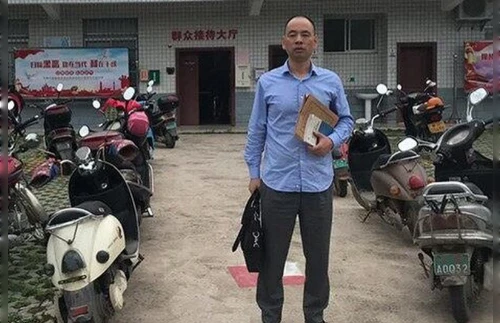
On April 22, 2018, a suicide bomber detonated an explosive charge near the doorway of a voter registration center in Kabul’s Shia-majority Dasht-e Barchi neighborhood, killing at least 57 people and injuring another 119. Meters away from the blast was “Arash,” a 27-year-old delivery driver and father to a 4-year-old son and 2-year-old daughter. Like many other bystanders, he rushed to the scene to try and help survivors. Instead, he ended up collecting the dead and their severed limbs: feet, hands
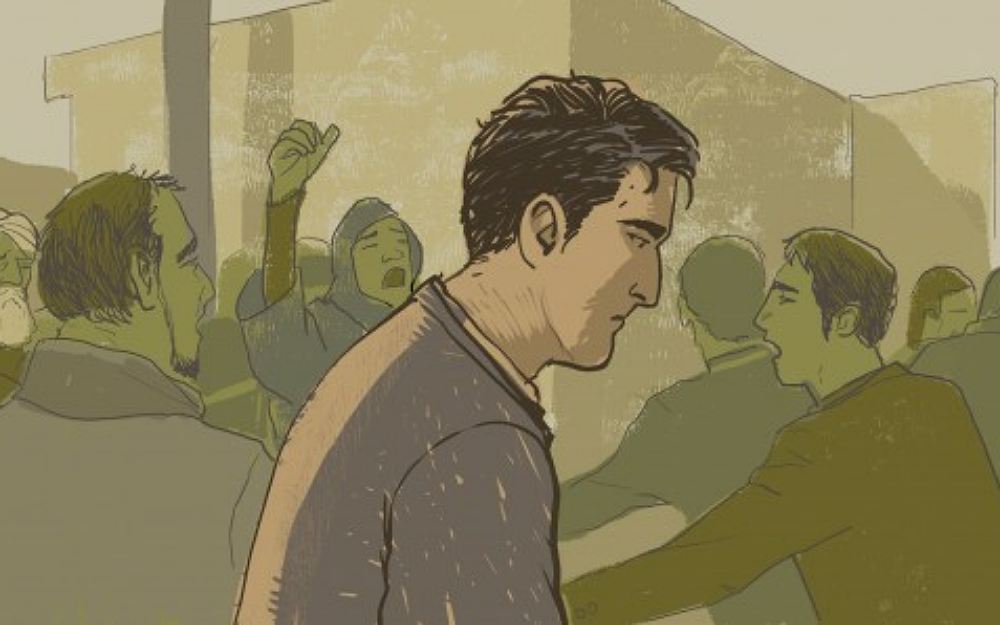
© 2019 John Holmes for Human Rights Watch
I did not forget a single moment of this attack – day or night,” he said, recalling how the attack changed his mood and behavior. “Before the attack, I could get angry, but not like this….But due to the economic problems, I just suffered on my own and did not go to the hospital. I just remembered every moment, until the next attack [I experienced”

The Afghan government is failing to provide sufficient psychosocial, or mental health, support to Afghans who have experienced traumatic events, Human Rights Watch said today. More than half the Afghan population, including many survivors of conflict-related violence, struggle with depression, anxiety, and post-traumatic stress, but fewer than 10 percent receive adequate psychosocial support from the state, according to government documents. The Afghan government and international donors should expand mental health services and outreach campaigns.
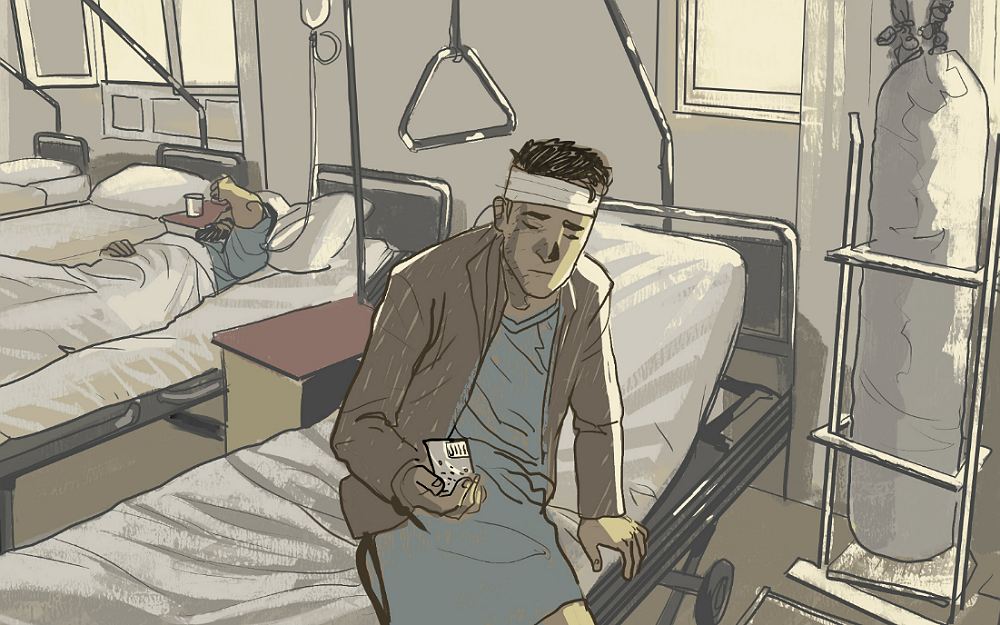
Unconscious, Arash was first taken to the Istiqlal, one of the largest public hospitals in the capital, and then to a surgical center for war victims run by Emergency, an Italian organization. Arash stayed at the hospital for one week, treated by foreign doctors and nurses. “When I was under treatment, I got medicine,” he said. “When I got discharged, I got a pocket of paracetamol tablets. No one asked me how I felt [mentally], all they did was a physical examination.”
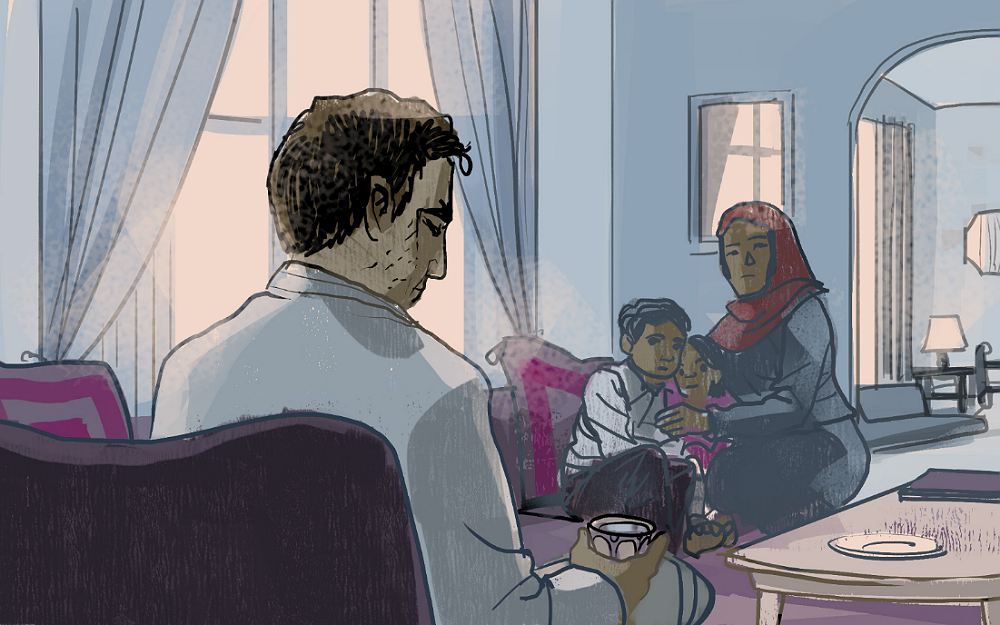
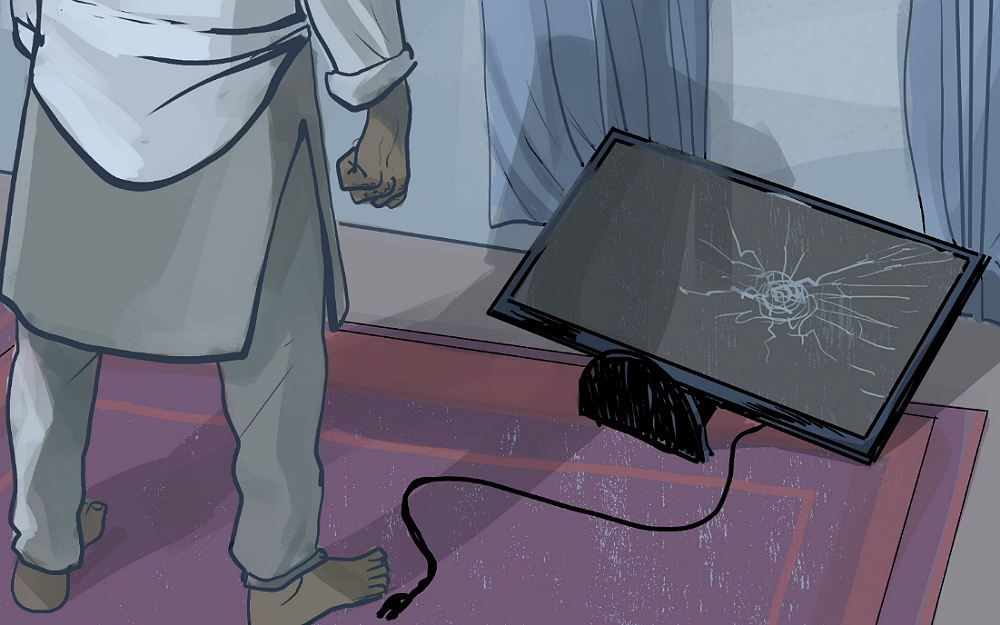
The April 2018 and March 2019 attacks had a significant impact on Arash’s psychological wellbeing and that of his entire family. “One day, my wife was not at home and I turned on the TV and didn’t like what I saw,” Arash said. “I was hearing that there was an attack and that the Taliban were gaining ground. So I punched the TV and broke it.” The incident was not?? the last in a series of angry outbursts that Arash attributed to the attacks.
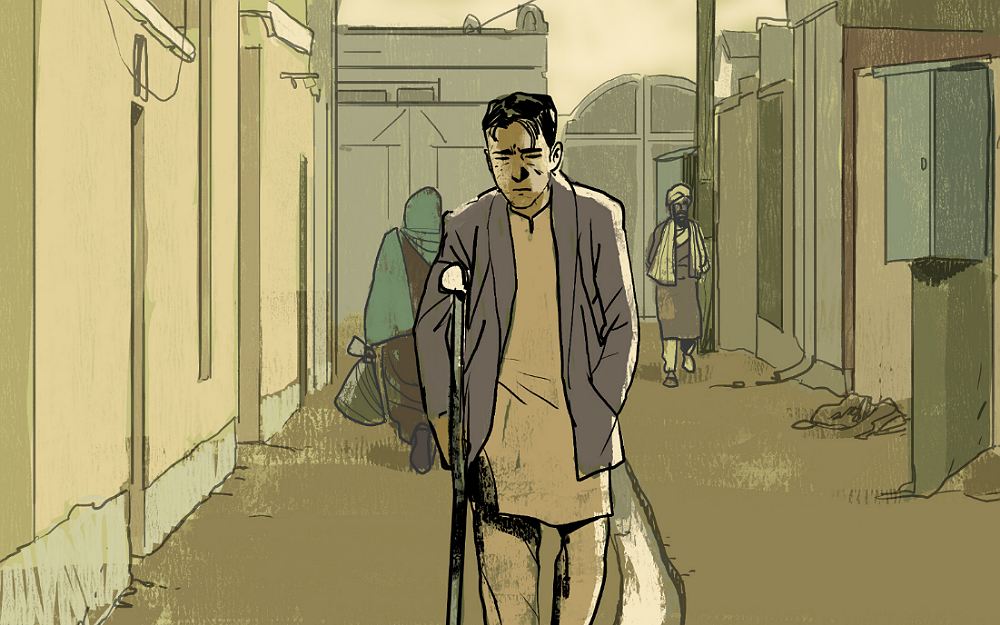
© 2019 John Holmes for Human Rights Watch
Because of where he lives, Arash said he is constantly confronted by the memories of the attack. “It happened in my street,” he said. “Every day, I have to pass through, and I remember the smoke, the ashes, the darkness and the sounds.” Adding to Arash’s concerns are his young family’s economic situation. Because of pain to his leg, he said he cannot work anymore, and he does not know how to feed his family. “I used to be very strong,” he said. “But now I feel like a half person.”
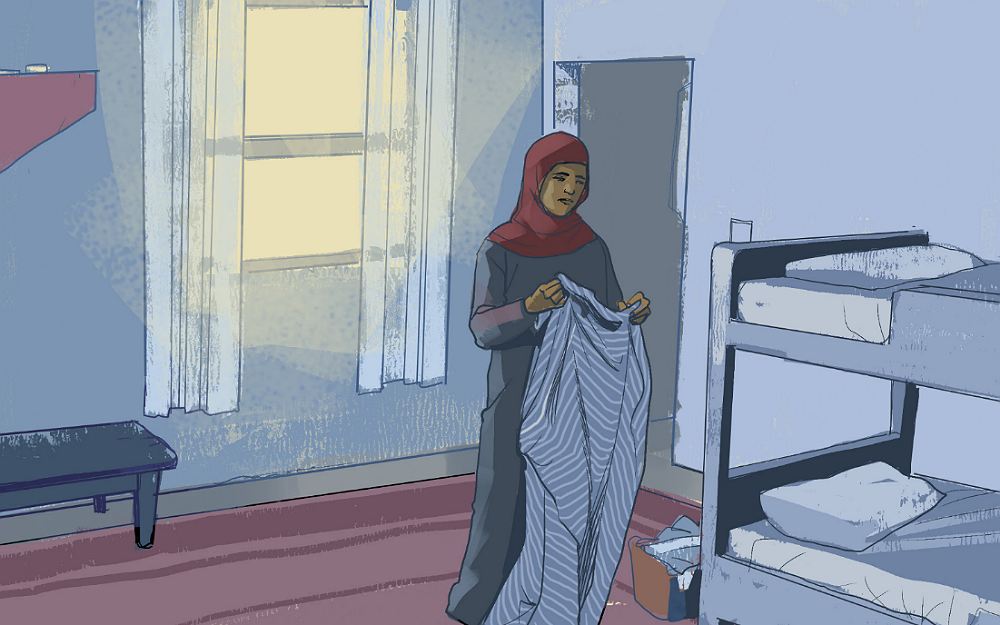
In a separate interview, Arash’s wife, “Mozhdah,” 26, said the attacks changed her life completely: “In the past, life was good,” she said. “Not anymore. I was pregnant for two months [when the second attack happened]. When I saw the injured body of my husband, I was shocked and lost the baby two days later.”
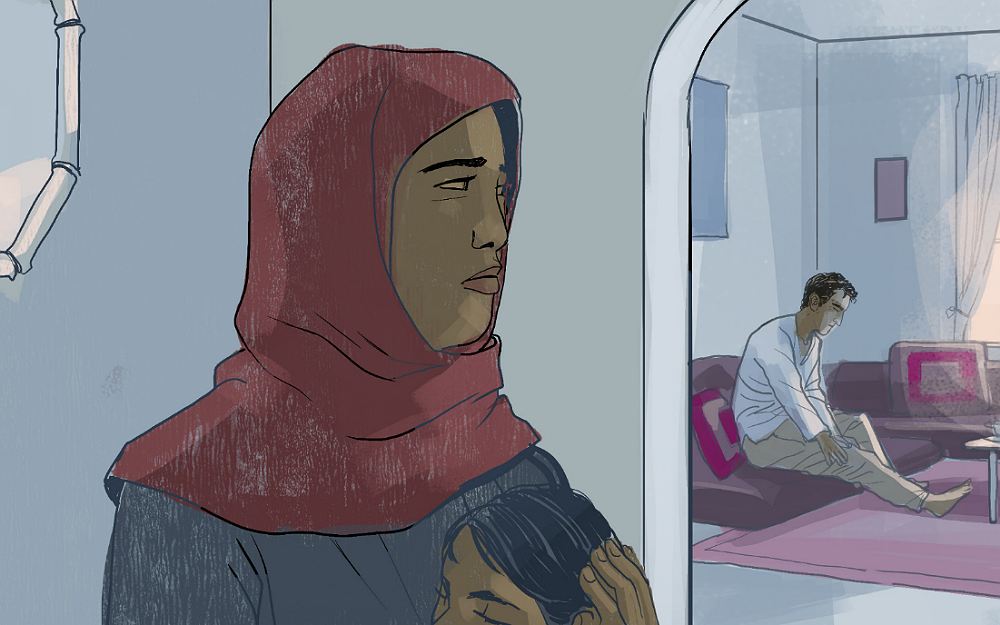
Adding to Mozhdah’s despair is her husband’s present psychological state: “Sometimes I feel bad, but I am forcing myself to manage the house and the children since my husband is sick,” she said. “When I get angry or sad or pressurized, I don’t enter the house because I don’t want him to feel bad.…I cannot breathe, I feel like I’m suffocating and just start to cry loudly. If I don’t, it feels like I cannot speak.”
The Afghan government is failing to provide sufficient psychosocial, or mental health, support to Afghans who have experienced traumatic events, Human Rights Watch said yesterday.
According to Human Rights Watch, more than half the Afghan population, including many survivors of conflict-related violence, struggle with depression, anxiety, and post-traumatic stress, but fewer than 10 percent receive adequate psychosocial support from the state, according to government documents. The Afghan government and international donors should expand mental health services and outreach campaigns.
Chinese Rights Lawyer Lu Siwei Sentenced to 11 Months in Prison
Prominent Chinese rights lawyer Lu Siwei, who was arrested and deported from Laos in 2023, was sentenced behind closed doors in China to 11 months in prison on Friday, his wife told Radio Free Asia.
After Inhaling Deodorant Spray in TikTok Challenge,Eight Years Old Brazilian Girl Dies
After her participation in the so-called “deodorant challenge,” which has been making the rounds on TikTok, an eight-year-old girl in Brazil died on April 13.Police said, Sarah Raíssa Pereira de Castro was hospitalized in the Federal District on April 10,when she inhaled the gas from a spray deodorant while participating in the challenge.
Regular Exercise Keeps Your Pet Healthy
Maintaining your pet’s weight is one advantage of regular exercise for pets. helping your dog in relaxing and improving their sleeping pattern. Regular exercise also maintains your dog’s mobility and wellness.It also reduces digestive issues and constipation and establishing a relationship with your pet and winning their confidence.Ir decreases undesired behaviors such as jumping up, gnawing, barking, and predatory behavior.
How to Report Child Abuse in India
Under the Commissions for Protection of Child Rights (CPCR) Act, 2005, the National Commission for Protection of Child Rights (NCPCR) takes complaints about any violation of children’s rights using the online Complaint Management System, Ebaalnidan.
Sri Lankan Police Pull Plug on Vietnamese Monk’s Tour Until He Changes Visa
Sri Lankan police on Thursday blocked Vietnamese Buddhist monk Thich Minh Tue from continuing his barefoot journey around the South Asian island until he changes his visa, a witness told Radio Free Asia.
North Korean Troops May Enter Ukraine Doon,Kyiv Warns
North Korean forces deployed in Russia’s Kursk region may soon be sent into annexed regions of Ukraine that remain fiercely contested by Russian and Ukrainian forces, a senior Ukrainian official said.
First Time Parents At Nearly 100 Years of Age
The first-time parents are two Galapagos tortoises at the Philadelphia Zoo,United States,that are about 100 years old and highly endangered.
Home Made Food for Pets
Choosing a range of fresh ingredients and avoiding the artificial additives, preservatives, and fillers frequently found in conventional pet diets, homemade dog food allows one to choose nutrition of guaranteed quality.





